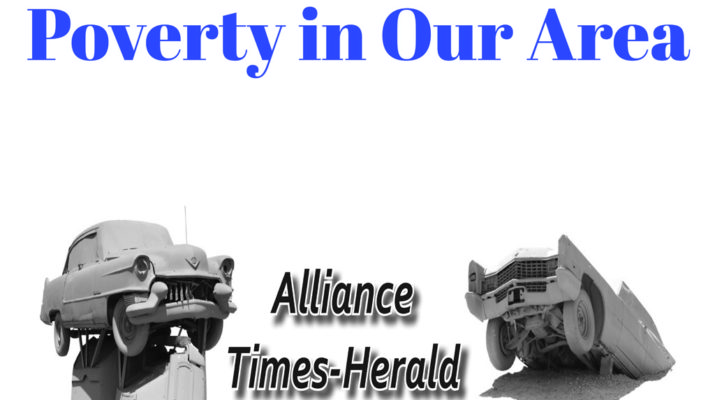We’ve all seen silos. We are, after all, an agricultural state. Silo is also used to describe a major problem that exists in large corporations – the refusal or inability to share information with other groups. In the Poverty Task Force, we’ve found that these silos also exist between agencies, and they create major roadblocks for those needing assistance.
Where do people go when they need help? Northwest Community Action Partnership? Department of Health and Human Services? Western Community Health Resource? Department of Labor? Alliance Housing Authority? United Way? There are several agencies, mostly through the state government, that provide services to people with limited incomes. Each provides services to meet some need and involves an application process and proof of income.
Sometimes these services overlap. Clients may not know which is the best agency to visit to get the assistance they need. Some of the agencies have staff to provide help, but many require the client to complete their forms on a computer and submit the data to their home office. Those forms are often rejected; maybe a field was left blank.
What does this mean for people in poverty? They may need to visit several offices, missing work. They may need to provide the same information repeatedly. They may need to find a computer with internet access, and then check back repeatedly to see if they have been processed. As their frustration level rises, they begin to be treated with less and less respect. The agency begins to see them as “the problem.”
Agencies have created data silos. The information they gather is accessible only to their staff. Because of privacy laws they cannot share with other agencies. Therefore, the person needing help must tell their story, share their problems, over and over again. This is so stressful, they often give up.
Agencies create plans to help their clients. They need information from the client’s application to identify the problem and decide which tools are most appropriate. But a person in poverty may end up with several agencies creating different plans, suggesting different tools to help them. The plans rarely ask for input from the person needing the services. And they rarely reach out to other agencies – the silo effect in action. Employees in these agencies don’t see their role in the bigger picture.
Is there a good solution? We’re working on it. Panhandle Partnership is an organization serving the eleven counties of the Panhandle. They do not provide services. Rather, they build collaboration among agencies, creating networks to find creative solutions to improve the quality of life and communities in the Panhandle. Panhandle Partnership was created in 1998, and is a key member of the Alliance Poverty Task Force.
Unite Nebraska is a new organization created in our state. They are a coordinated-care network of health and social service providers. Unite Nebraska has created a shared technology platform, which enables agencies to send and receive electronic referrals to address people’s needs. Once a network partner identifies a person’s social needs, they can instantly send a secure electronic referral to the most appropriate network partner(s) for that specific service. Partners involved in that person’s care will have visibility into whether or not the referral is accepted and once accepted, whether or not that person received the services and what happened as a result.
These two organizations allow us to identify service gaps and identify at-risk populations. They don’t solve all the problems of the silos created by having several different agencies addressing the needs of low-income people in Nebraska, but we are moving in the right direction.

